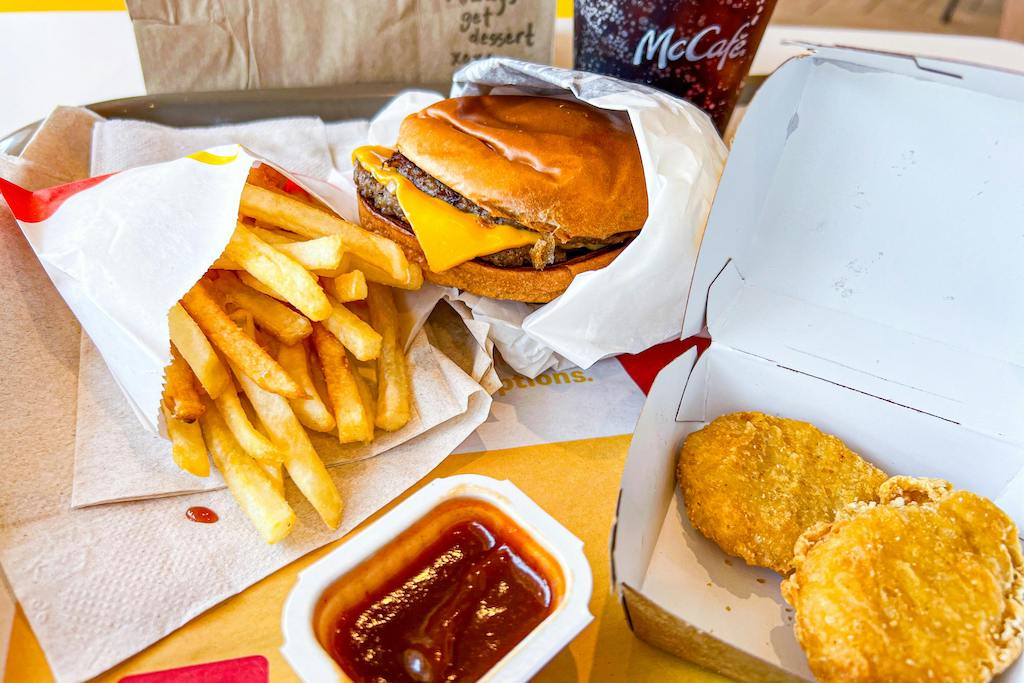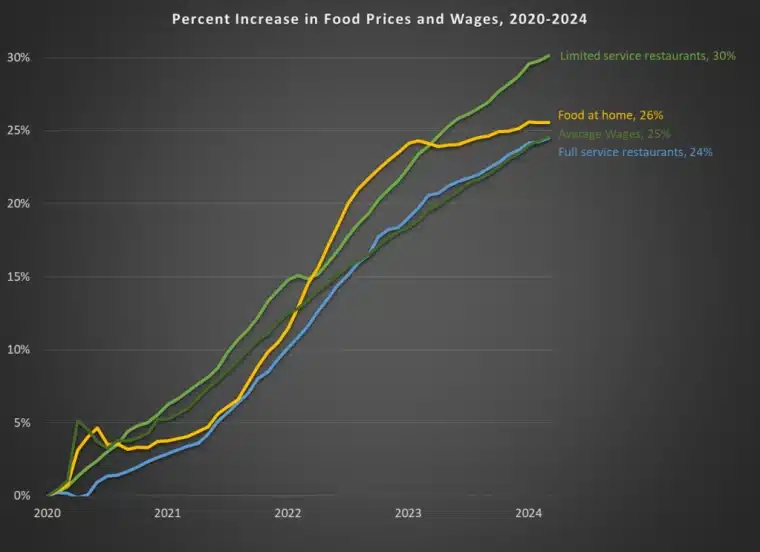In a bid to attract cash-strapped consumers, McDonald’s is rolling out a highly anticipated $5 value meal across its US restaurants. The limited-time offer, set to launch on June 25th and last roughly a month, comes as the fast-food industry grapples with the impact of stubbornly high inflation on consumer spending habits.
McDonald’s new “$5 Meal Deal” aims to provide an affordable combination for customers looking to make the most out of their tight budgets. For just five bucks, the meal includes:
- Choice of a McDouble cheeseburger or McChicken sandwich.
- Small french fries.
- 4-piece Chicken McNuggets.
- Small soft drink.
This bundle represents significant savings compared to purchasing these items individually on the standard menu.
McDonald’s Addresses Mounting Criticism in Social Media for Its High Prices

Joe Erlinger, President of McDonald’s USA, emphasized the importance of delivering value to customers during these challenging economic times. “We heard our fans loud and clear — they’re looking for even more great value from us, and this summer that’s exactly what they’ll get,” he stated in a press release.
Also read: The Day McDonald’s Stopped: Inside the Unprecedented IT Crisis That Closed Its Stores Worldwide
Erlinger recently issued an odd statement blasting a seemingly orchestrated campaign to discredit McDonald’s through “viral social posts and poorly sourced reports” that pointed to the Golden Archs company raising its pricing “beyond the inflationary rates”.
Statistics from the United States found within the Consumer Price Index (CPI) report indicate that from 2019 to 2023, fast food prices have risen by nearly 28%.
Experts cite an increase in commodity costs needed to produce these flagship dishes like potato, bread, and meat but also an increase in labor costs. Minimum wage increases in certain states have contributed to this phenomenon.
In the case of McDonald’s, a study conducted by USA Today found that the most affordable location was Houston, where a mid-sized meal was priced at around $8. However, in certain locations like Seattle, the price for that same deal would be as high as $15.
Franchise Owners Claim $5 Meal Demands Support from Corporate
While this new promotion promises affordability for consumers, an independent advocacy group, the National Owners Association (NOA), has been vocal in asking for McDonald’s corporate financial support to make these discounted offerings attractive and sustainable for franchisees.
In a letter to its membership, the NOA board wrote: “The fact remains that in order to provide the consumer with more affordable options, they must be affordable for the owner/operators. McDonald’s vast resources and financial investment are essential to any sustainable affordable strategy.”
The letter highlights the “penny profit business” model of McDonald’s, which typically generates gross margins of around 10% to 15%, as one that makes it difficult to accommodate heavy discounts.
“There simply is not enough profit to discount 30% for this model to be sustainable. It necessitates a financial contribution by McDonald’s.”
McDonald’s has declined to comment on the NOA letter but previously noted that U.S. franchisee cash flows are up nearly 50% on average since 2018, with 2023 being one of the best years for franchisee cash flow in the company’s history, even after accounting for inflation.
The Impact of Inflation on the Fast-Food Industry
The $5 value meal promotion comes as fast-food chains grapple with the impact of inflation on consumer spending. As prices for menu items have risen across the industry, lower-income groups have been opting to eat more at home and cut back on restaurant visits.
A January poll by Revenue Management Solutions found that about 25% of people who make under $50,000 were making cuts on their fast-food spending. Casual dining restaurants have also felt the absence of low-income Americans.
In response, fast-food rivals like Burger King, Wendy’s, and even Starbucks have rolled out their own meal deals in recent weeks, aiming to attract cost-conscious eaters. Burger King is reportedly considering a $5 “Your Way deal”, which shares staggering similarities with McDonald’s new promotional menu.
McDonald’s CEO Chris Kempczinski acknowledged the pressure during an April 30 earnings call, stating, “Consumers continue to be even more discriminating with every dollar that they spend as they face elevated prices in their day-to-day spending, which is putting pressure on the industry.”
He emphasized the importance of affordability for the McDonald’s brand as consumers have always been lured to this type of restaurant for the combination of fast service, low prices, and tasty alternatives.
Franchisees Weigh In
John Palmaccio, a McDonald’s owner and chair of the Operator’s National Advertising Fund, expressed support for the $5 meal deal, saying: “Great value and affordability have always been a hallmark of McDonald’s brand, and all three legs of the stool are coming together to deliver that at a time when our customers really need it.”
Also read: These 100+ McDonald’s Statistics Explain the Success of the Golden Arches
However, the NOA letter suggests other measures that McDonald’s could take to ensure profitability for franchisees and affordability for customers. These include:
- – Innovating on the menu by bringing back items like snack wraps that use existing ingredients and carry lower costs.
- – Introducing popular beverages from McDonald’s spinoff chain, CosMc’s, at flagship locations to excite customers and employees.
The NOA had previously pushed for affordable options that do not involve heavy discounts on “core and iconic” items.
More Sustainable Strategies Are Still Needed to Counter the Impact of Inflation
As the $5 value meal promotion kicks off on June 25th, McDonald’s and its franchisees will be closely monitoring its impact on sales and customer traffic. The fast-food giant’s next earnings report, which will be published in late July, should provide additional insights into the rationale behind this strategy and possibly some early results.
While the limited-time offer promises affordability for customers, the long-term sustainability of these discounted meals hinges on the company’s ability to support its franchisees financially.
As the NOA suggests, continued innovation and strategic menu adjustments may be necessary to strike a balance between value and profitability and to provide a comprehensive and sustainable response to the problem of inflation.

